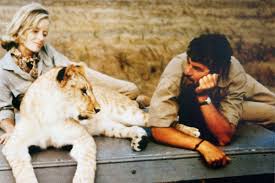Cecil the Lion and Due Diligence Failures
 Lauren Connell, Managing Associate at the Volkov Law Group, joins us again for a guest post. Lauren’s profile is here and she can be reached at [email protected].
Lauren Connell, Managing Associate at the Volkov Law Group, joins us again for a guest post. Lauren’s profile is here and she can be reached at [email protected].
The “I didn’t know” defense is a tough one to sustain. Maybe you didn’t “know,” but should you have known? Were all the signs there but you looked the other way? Should you have asked more questions? Is it fair to infer by your failure to act or ask questions that you “knew” you were violating a law or regulation?
The FCPA’s “knowing” standard is well-defined. The DOJ’s FCPA Guidance states that “Under the FCPA, a person’s state of mind is “knowing” with respect to conduct, a circumstance, or a result if the person: (i) is aware that [he] is engaging in such conduct, that such circumstance exists, or that such result is substantially certain to occur; or (ii) has a firm belief that such circumstance exists or that such result is substantially certain to occur. Thus, a person has the requisite knowledge when he is aware of a high probability of the existence of such circumstance, unless the person actually believes that such circumstance does not exist.”
To put it simply, you cannot look the other way. If something seems off or wrong, you have to investigate. If your third-party agent promises huge returns but requires you to wire his payment to a bank account in his mother’s name in Malta, you have to got to ask questions. If your third-party asks for commission that is double what the market price is, you have to ask why. If your third-party refuses to show you his business license or answer your questionnaire at all, you should considering ending any potential relationship.
The knowledge standard for illegal lion hunts in Zimbabwe is not as well-defined. The Minister of Environment, Water, and Climate at Zimbabwe’s Parks and Wildlife Management, O.C.Z. Muchinguri, issued a statement on July 31 outlining the laws the American hunter, the now infamous Dr. Walter Palmer, his guide, and the landowner where the hunt took place, are alleged to have broken.
“I didn’t know,” says Palmer. Okay, but should [Palmer] have known? That is the question that is asked in the FCPA context. I’m going to ask it here.
Should Palmer have known that this hunt was illegal? As a non-hunter that does not know all the facts, very few really, I can quickly point to several red flags that should have led Palmer to ask questions.
- The fee he paid, $50,000 in a country where the highest government salary is $508 per month, was astounding. Did Palmer ask if that is what a legal lion hunt should cost?
- Cecil was supposedly lured out of the park with food. Did Palmer ask why such seemingly obvious nefarious tactics were used?
- Did Palmer ask to see his guides’ hunter’s permits and licenses?
- Did Palmer ask why his guides were taking precautions to keep quiet, such as not using guns?
- Did Palmer Google his guides’ names to see if any had a history of illegal hunting.
These are all basic questions and inquiries that Palmer should have asked. Business managers have to ask analogous questions as part of a due diligence process designed to make “reasonable inquiries” on issues relating to potential risk of corruption. If a company fails to ask any questions, then the company runs the risk of acting with the requisite intent to violate the FCPA.
 Thus far Palmer’s defense, at least to the public, is “That was never my intention.” In a country notorious for illegal trophy hunting that ranks 156/175 of countries in the Corruptions Perceptions Index, if Palmer intended to abide by the law, should he have asked a few more questions before he forked over fifty grand and drew back his bow and arrow?
Thus far Palmer’s defense, at least to the public, is “That was never my intention.” In a country notorious for illegal trophy hunting that ranks 156/175 of countries in the Corruptions Perceptions Index, if Palmer intended to abide by the law, should he have asked a few more questions before he forked over fifty grand and drew back his bow and arrow?
From an anti-corruption perspective, this is a great example of the type of “look the other way” philosophy that is an easy trap for employees, managers, and executives to fall into. Palmer really really wanted that lion, just like your sales manager might really really want that contract. Palmer closed his eyes and did not ask questions; would your organization do the same?
















How were the $50,000.00 paid? Did Palmer pay in cash, wire transfer, etc.. Were the funds sent to an offshore account/business? or to a possible affiliate in the United States. Regardless, they could have been clear signs in the movement of the funds that could have set the ‘red flags’ off in terms of the DD the financial institution was doing.
It sure does spark my curiosity?? Any comments?